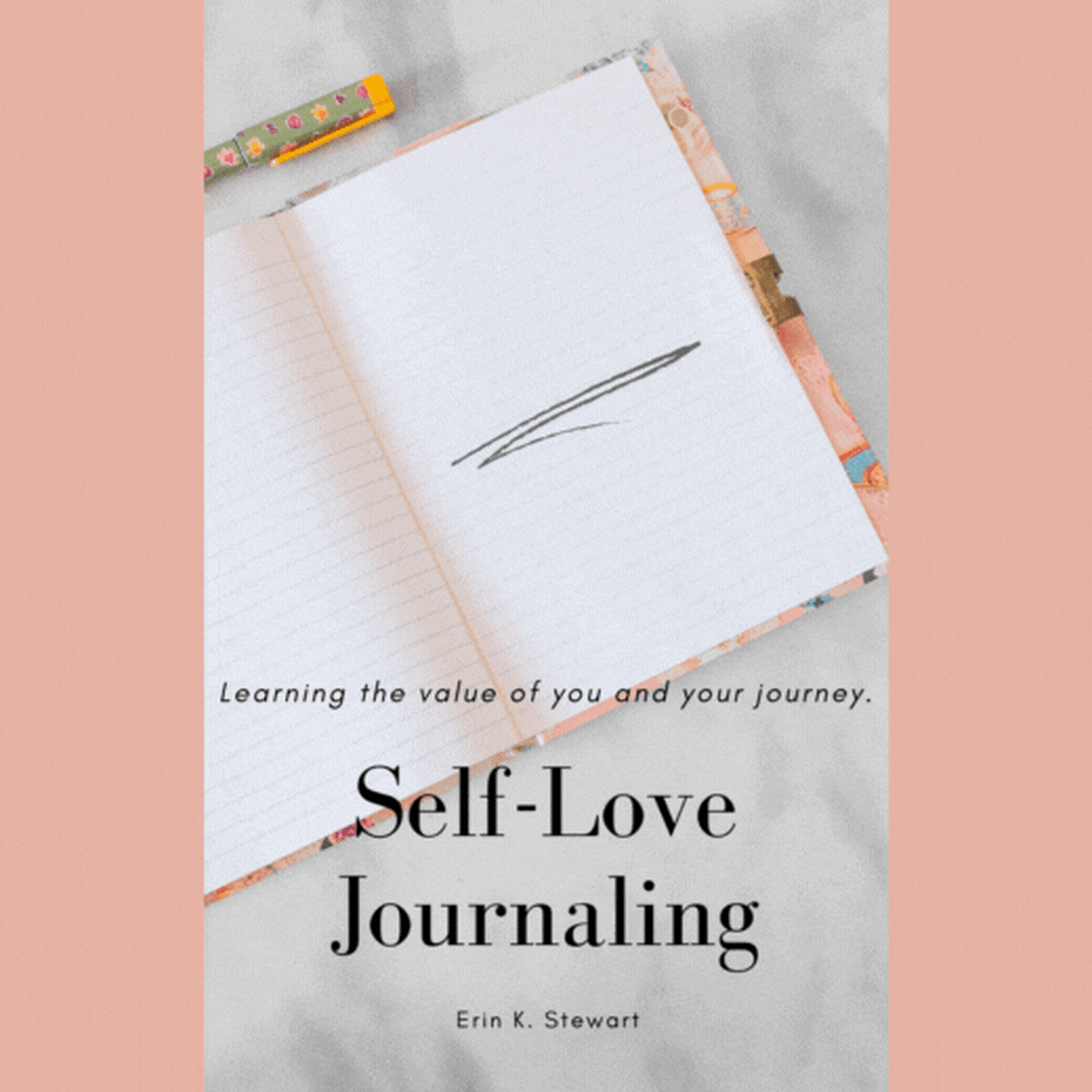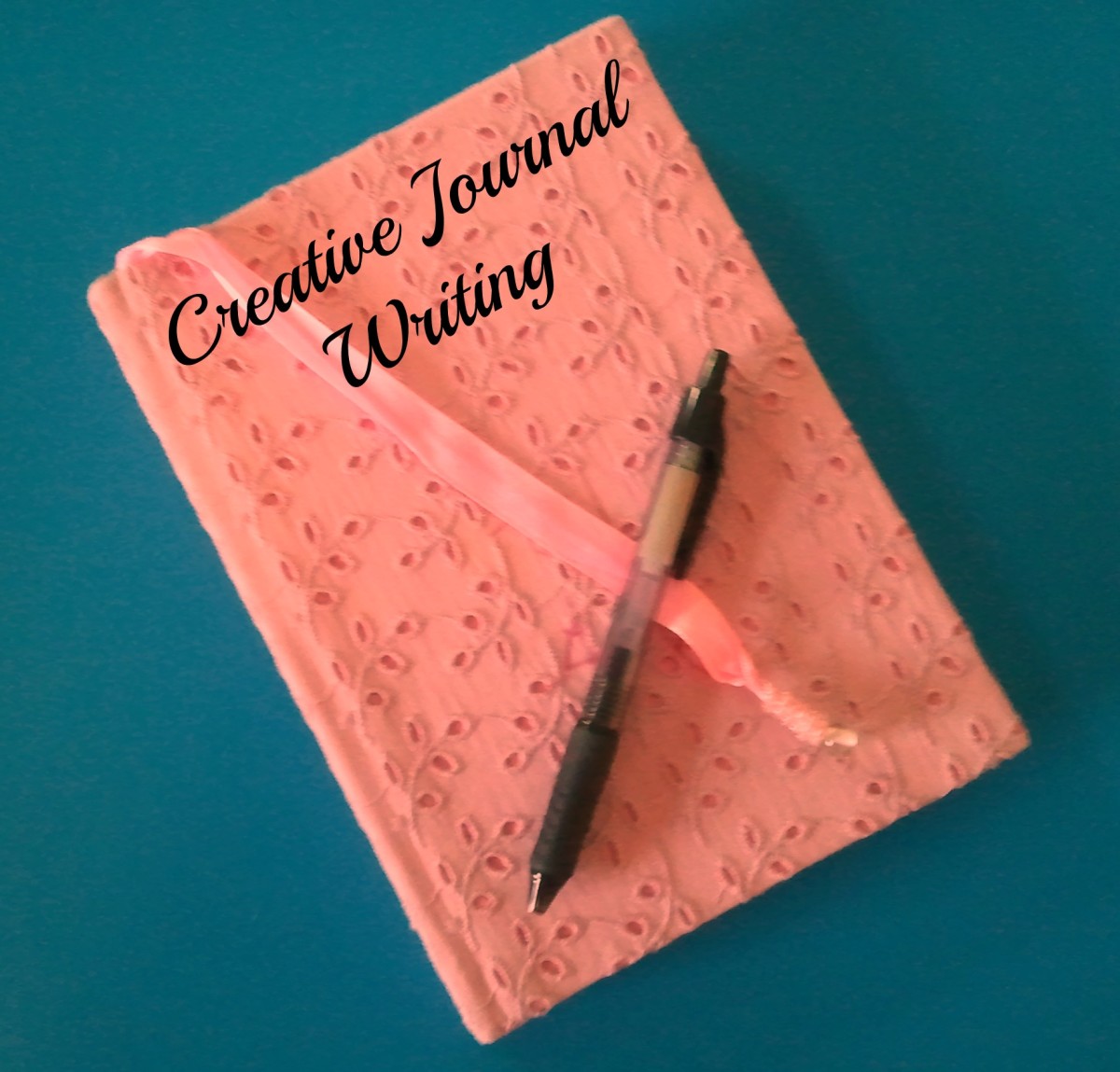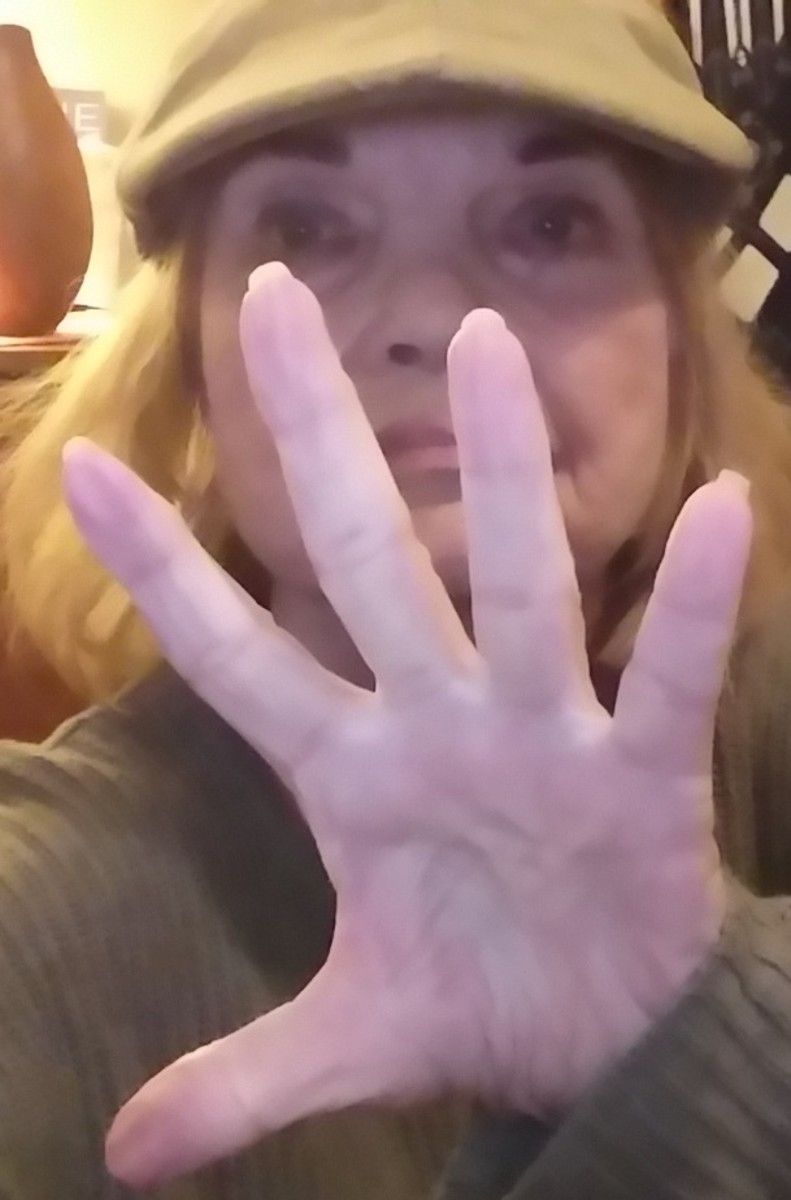The Power of the Written Word: Ways to Motivate
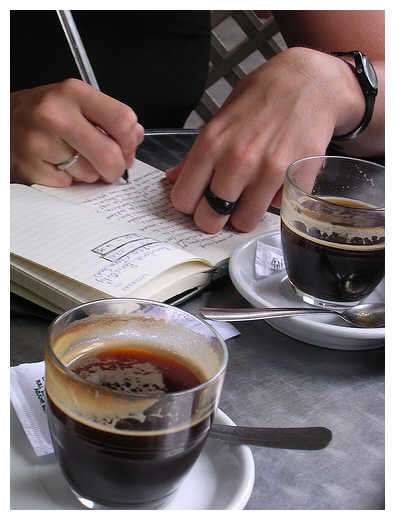
Doing it your way
My dad’s words ring in my head whenever I think about how to help people get motivated to journal. He was a joker in his own way. He got away with statements to others that would normally be taken seriously and insultingly. A common reply from him to the very common comment customer service workers say, "Have a nice day!" would be, "Don’t you tell me what to do!" with a slight and mischievous grin. He said he did this because he knew waiters, waitresses and cashiers put up with so much from others, he just wanted to give them a chuckle; brighten their days a little. And when I look back at his life and our relationship, I see that although that was a running joke he would have with customer service, it seemed to be his way of life. He lived his life on his own terms. He didn’t let anyone tell him would to do.
I’ve come to believe that this is a healthy, albeit sometimes rebellious, way to live life. And thus, this is how I’ve come to teach and counsel. In the 20 plus years I’ve been counselling in the various settings, an overall attitude I’ve taken on has been the resistance to give advice. I don’t believe that I, or anyone else, not even the highest-paid psychiatrists, have the right to tell another what to do with their lives; what is "best for them". I believe we all have that ability to decide for ourselves. I also believe that telling another what to do will diminish their motivation. I believe this because I believe, deep inside every living human being, there is the need to make all one’s own decisions. It creates a wonderful sense of personal power and integrity which leads to abundance and success.
So when we are talking about motivating another to journal, we are talking about helping them to create their own plan of inspiration.
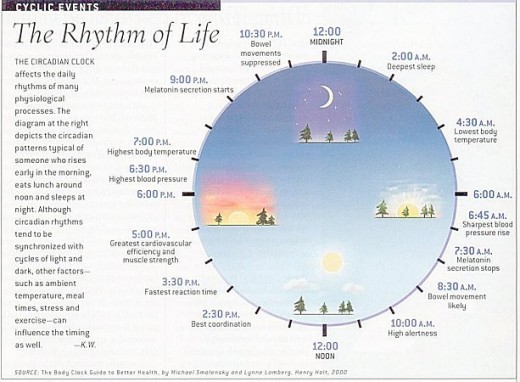
When to write
First of all, to be successful in a continuous routine of writing, it’s helpful to take a bit of a look at yourself. Not in judgment, but assessment. I know, that is what the journaling is for, but before that, just look at one thing. Are you a loon or an owl? No, I’m not calling you names or being insulting. These are just terms to easily describe you as a day person or a night person. This is the first step towards looking at your circadian rhythm, the natural, personal 24-hour schedule your mind and body are on. When do you feel more creative? When is the best time of day for you to solve problems? When is your body more cooperative in doing housework, yardwork, playing sports or other physical activities? When are you most likely to be in the mood for intimacy? Once you look at when different activities are the easiest for you, you can start to go with your natural clock, where possible.
And I do mean, where possible. For instance, I found an example of a common circadian cycle schedule when doing the research for my "Organizing Your Life – From the Inside, Out" workshop several years ago. Included in the list of times and activities, is 5:00pm – 9:00: when both male and female hormones peak, resulting in maximum pleasure and performance. Ok, that’s wonderful to know. However, this is also the usual time period we eat supper. So, Mom and Dad may feel amorous at the supper table but know that little 7-year-old Tommy may not appreciate his parents leaving the table, running down the hall and slamming their bedroom door shut for some time, leaving Tommy with all kinds of questions, and missing his dessert.
But I digress.
We can work with what would we’ve got, in combination with our clock.
For myself, I find that early in the morning is my best time to journal, work on a novel in on-going progress and write my articles. I’m writing this now at 7:15am. Prior to this, I wrote a page and a half of free association journaling. We’ll get to the techniques (ie. free association) in the next article.
It’s also effective to discover a piece of your personality and go with it when finding inspiration to journal. Are you a person who likes structure? Or do you like to go with the flow?
If you like structure, you are more likely to adhere to, and appreciate, working with your circadian rhythm and choose a regular time of day. However, if you’re a go with the flow type of person, my suggestion to you is to carry with you a smaller journal wherever you go. You may find it more successful to decide to journal when the urge hits you. Deciding a set time of day, may find you staring at the paper with pen in hand and a little voice in your head that sounds something like "don’t you tell me what to do". This one can be a little tricky and you may need to play with it for a bit to see what works. Why do I say this? Because I’m a go with the flow type of person who writes every morning as soon as I get up. This is just what works for me. It’s the only thing in my life that is structured. This is because I not only journal and am a freelance writer, but I’m also a counsellor, intuitive consultant and reading, and a workshop / group facilitator. If I don’t write first thing in the morning when my circadian rhythm laps it up, it will most likely not get accomplished that day.

Journaling Paraphernalia
So, what do you prefer? Paper and pen or digital device? Either one will work, but possibly only one will work best for you. This is what most people say. However, there is always an exception to the rule. If you don’t know at this point of reading this article, I suggest trying both out. One thing to consider is the privacy factor. Which way will provide you with the best privacy? This will play heavily into your inspiration as the mind will work to protect you. If you share your computer and don’t have a system that allows you for privacy then your mind will register this and not allow you to pull out the deep thoughts and feelings that will provide you with healing and helpful journaling experience. Some people have said that just the act of writing or printing on some form of paper ignites the creative flow.
If you choose to use a computer, a trick of inspiration is to create a system of folders to store your journaling files in. You can create folders based on the techniques you choose to use, or the topics and issues you choose to write about.
If you choose to write in a journal, the type of journal is very important towards the motivation factor. What type of journal will you prefer? Do you value visual image? You might be inspired to obtain a decorative book with blank or lined pages inside. Do you plan on journaling on the road? It would be good to consider the size of your journal for maybe keeping it in your purse, bag or briefcase. Is writing comfort important to your inspiration? Consider a spiral-bound journal or notebook so you can open it flat on the table or your lap, or even fold it over. Do you need to disguise your journal so other people around you are not tempted to peek? A plain notebook is good for this. I’ve even suggested to women to write on the cover a subject that would act as a deterrent to others in the household. If privacy is an issue, you can always purchase a diary with a lock.
Also, if you choose to journal with paper and pen, the pen is an essential factor to regard. I myself, am quite picky about the pen I use. It is one of the biggest motivational aspects that determine the success of my writing. It even greatly affects my penmanship. If I’m using a pen that doesn’t feel awesome in my hand and has ink that doesn’t flow perfectly in my opinion, the journaling or writing session is just not going to go well.
What is calling you?
As I’ve mentioned, in the following article, I’ll be addressing the different kinds of techniques and exercises to use. Each one has its own purpose. These purposes have to match your personal purposes for journaling. Also, the techniques you choose simply have to intrigue you; make you curious and entice you. Pay attention to your inner reaction to everything I write in these articles about journaling. If something I suggest causes an internal reaction of resistance, it’s not for you. If something causes you to want to check it out, go for it.
What areas of your life are you drawn to explore at this time? The issues and topics that would be beneficial for you now will invoke emotional reaction within you. Yes, excitement and curiosity are two easy responses to go by, however it is important to understand that the areas in your life that you would greatly benefit from if explored are areas that cause you to feel anxiety, stress and fear when considering.
I once read, "The fear you feel towards dealing with something is directly proportional to the affect it has on your everyday life." I think that statement is brilliantly spot-on.

Your space
Where you decide to journal can inspire you. To get things moving, while training your body and mind into your journaling routine, sometimes it’s helpful to create an environment that will trigger you to write. The first thing to consider is comfort. Journaling comes easier when we are comfortable. Discomfort is a distraction. The second thing – privacy. Interruption from others is also a distraction. I’ve heard some say they sit in their living room early in the morning before everyone else in the home gets up. I’ve heard others say they retreat to their bed, their safe place. During the warmer months, sitting somewhere outside, at a picnic table or under a tree, may be inspiring for many. I’ve even heard of the necessity to write in the car because it’s the only place to achieve privacy. What feels right for you? This choice will be a combination, or compromise, between what works for you and the practical aspects of your life. Work with what you’ve got.
What will you include in this space? Think of your five senses. What lighting best works for you? Will you burn incense? Will you surround yourself with items that give you positive, safe and secure feelings? Will you require complete silence? Or will you include music?
Several years ago, when my kids were little, often I would have to retreat to the bedroom when my husband was home to watch the kids so I could write poetry. To drown out any noise coming from the living room or kitchen where my loving brood was, I would put on a CD (ok, it was a cassette tape; we’re talking 25 years ago, to be honest) of the same music every time. It was a collection of songs by Zamfire. It just worked for me. The interesting thing is, now 25 years later, if I put Zamfire on, all I want to do is write poetry! Music can be a trigger for anything. Why not use it to trigger journaling? However, if silence is what you require, of course, choose silence.
Inspired by others
Before I write in the morning, with my first cup of coffee I often read. What do I read? Anything. Right now, I’m working on an Anne Rice novel because her writing style inspires and even influences me. When I write poetry (I have a small, side business called Poetry Lady. I write personalized poems for others to give as gifts), I write other people’s poetry to get my mind working in rhythm and rhyme. Often I’ll read my own poetry to remind myself of my specific style. If I’m planning on working on an article in progress, I will read other people’s articles. What would work for you? Whose written work inspires you?
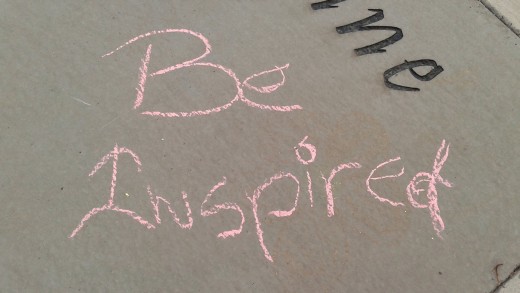
Setting boundaries
None of the above tricks of the journaling trade will work for you unless you set boundaries with yourself and with others. Before doing this, you need to look inside and check out your beliefs. Do you believe that you deserve to take time to journal? Do you believe that journaling is helpful, rewarding and fun? Do you believe you have the right to tell others you need time, space and privacy to yourself - to write, or do anything else? If no, journaling for you will probably be associated with a level of guilt and stress and therefore eventually be put aside for other things you deem as more important and/or productive. You may not be able to deal with a sense of selfishness, which is merely an illusion coming from a conditioning in you from your past. It’s not real. Read this repeatedly…you have the right to your own time, space and privacy to journal. Everyone does.
Setting boundaries for journaling can sound like setting rules.
To self:
- I will journal each morning for 30 minutes
To others:
- Please, leave me alone for 30 minutes, until I’m done writing in my journal.
- Please, do not touch my journal. It is private. (However, stating this may create a curiosity and temptation in others they may choose to not overcome.)

What else motivates you?
Of course, I’ve never stated I know everything. There are other tricks of motivation that will work for you. Ask yourself, what inspires my creativity? The real trick is to give yourself permission to roll with it.
What’s stopping you?
After reading this article, and you still are not inspired to write, consider the idea that you also have barriers to writing. Check out a previous article of mine, http://hubpages.com/health/the-power-of-the-written-word-barriers-to-journaling to examine any possible barriers you might have.
--------------------------------------
We all can journal. We all can be good at it. We all can meet many needs by journaling. Recognizing what inspires us is very key to this success. We just need to figure out our personal inspirations non-judgmentally. Again, this statement fits – knowledge is power.
THE COMPLETE SERIES
The Power of the Written Word: Introduction to the Journey
http://hubpages.com/health/The-Power-of-the-Written-Word
The Power of the Written Word: The Benefits of Journaling
http://hubpages.com/health/The-Power-of-the-Written-Word-Benefits
The Power of the Written Word: Barriers to Journaling
http://hubpages.com/health/the-power-of-the-written-word-barriers-to-journaling


